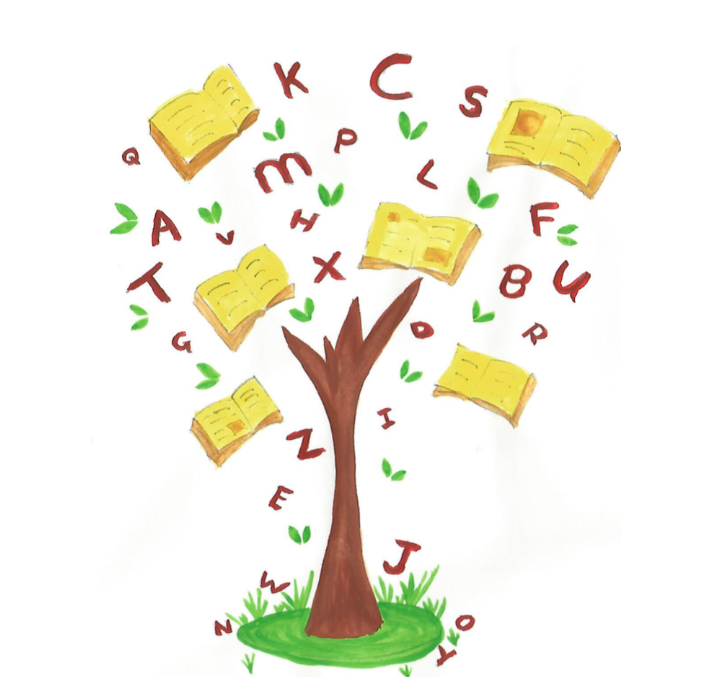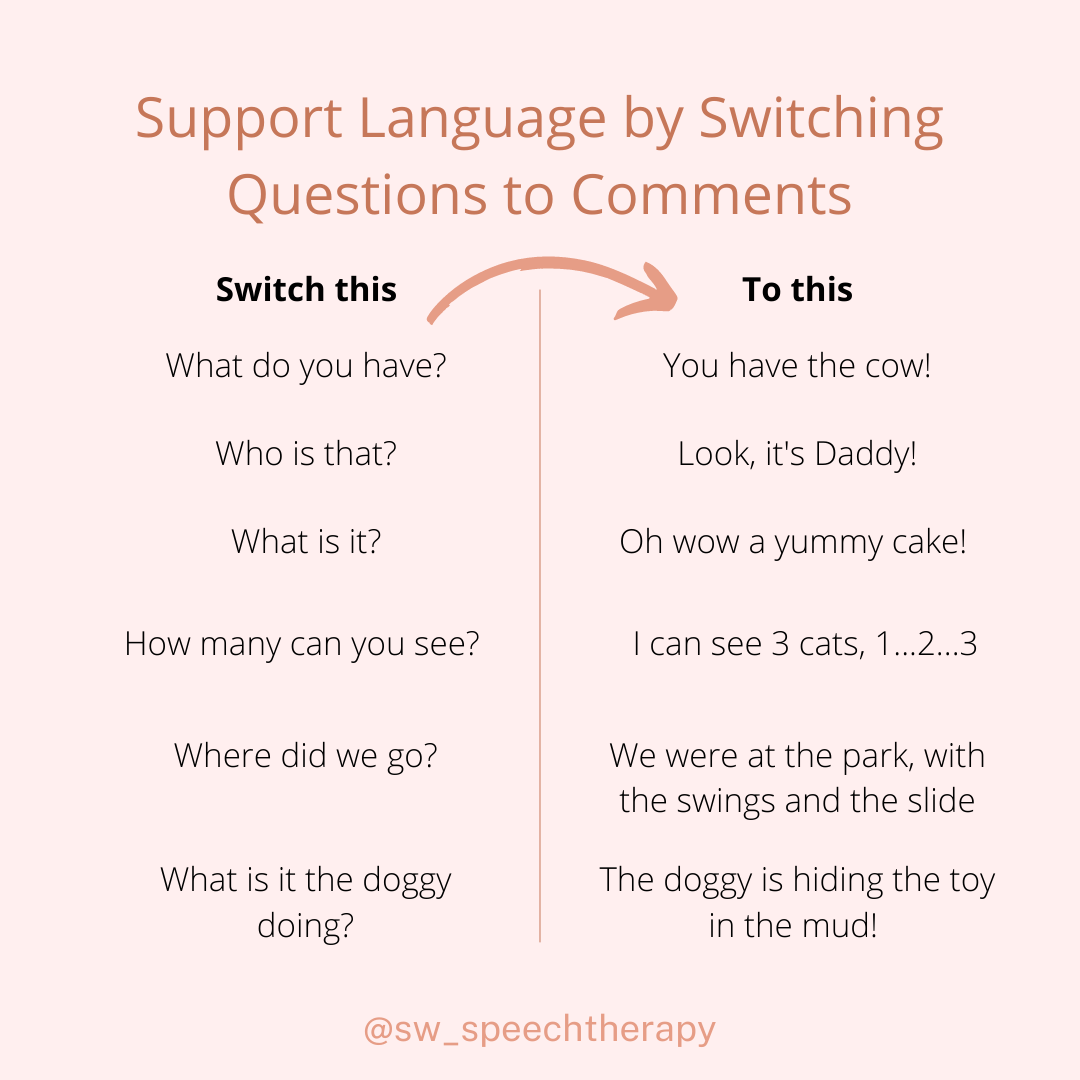How to get your child talking
Top tips to get your toddler talking through teaching them how to request for their favourite toys and foods
Start or develop your little one’s communication skills through teaching them to ask for the things they want and need…
“How can I help my toddler talk?” This has to be one of my most asked questions!
Along with “what is ‘normal’ speech development?” and “when should my child be talking?”.
Luckily I have some top tips for you to help boost your little one’s speech & language skills.
I am going to focus in this post on how you can support your little learner to ask for the things they want. If you are looking for more general advice, check out this blog post where I talk about what you can do while waiting for speech & language support.
Why work on requesting?
Requesting (asking for things) is the earliest developing form of communication. Whether little ones are asking for food, a nappy change, our attention or a preferred toy this is where it all starts!
It gives instant results! We can show little ones that we are listening and understanding them with our behaviour very easily.
It reduces frustration. Imagine really wanting something but not being able to communicate that need - horrible!
How to work on asking?
💰Give a small amount of the item 'for free'.
🗣️ Model the sign/ word they need.
⏸️ Pause, quietly.
💰Give a small amount 'for free'.
This means exactly what it says! Give your little one a bit of whatever it is they want with zero expectation for them to ‘do’ anything for it. So you might give them few mini-cheddars, blow a few bubbles, give them 1/4 of the puzzle pieces they need.
By offering something for ‘free’ you are establishing motivation for the item (making sure they really want it), and setting yourself up as a helper as opposed to someone just getting in their way (by demanding they ask straight away).
🗣️ Model the sign/ word they need.
After you have given your toddler a little bit of the toy/ food they love, show them how to ask for this item. Do this by modelling the sign or saying the name of the item (e.g. “cheddars”, “bubbles”, “puzzle”).
⏸️ Pause, quietly.
Pause expectantly, and quietly wait to allow your little one time to process what has occurred. Look between your little one and the rest of the item (e.g. look at your child and then at the mini cheddars packet and back again). Often this pause alone is enough for children to have a go at saying the word to ask for more of the item.
🧡 As soon as your little one says the name of the item/ copies your sign show them you have understood and give them the rest of the toy/ food!
Ok great but what if they don’t say the word?! What do I do then?
This is really common! When talking is tricky for little ones, the pause is not enough - we need to give them a little more support. So here’s what to do…
During the pause count to 3 (slowly in your head), if nothing happens, say the word again and give your little one the rest of the toy/ food as if they said it. We don’t want to create additional frustration here so accept that on this go they weren’t quite sure what we were asking.
Choose 2-3 key toys/ foods to focus on and only work on this strategy with them. The ones you pick need to be HIGHLY motivating, and you need to be able to offer bit-by-bit, by breaking into smaller parts, or by giving a turn and then pausing.
The next time there is an opportunity with one of the key toys/ foods follow the steps above but…
Say the word and sign at the same time, and use hand-over-hand or hand-under-hand prompting to support your little one to sign along with you. As soon as they do, give them the rest of the toy/ food.
Enjoy! Let me know how you get on by dropping me a DM on instagram where I am @sw_speechtherapy
What to do while you wait for speech therapy: the ultimate parent guide
My top tips for how to support your little one while you wait for speech therapy
It’s no secret that early intervention is the most effective way to support children’s speech and language development.
But what should that ‘intervention’ look like and what do you do as a parent while you wait for your child’s speech therapy appointment?
Let’s dive into this guide to help you, help your pre-schooler develop their communication skills.
Referrals – get them in, and don’t wait about!
If you’re not on the list you’re not coming in!
This is absolutely the case for speech and language therapy. There is always a wait for an appointment, but in the wake of covid these wait times have got a little longer.
So get the referral in sooner rather than later, if by the time your little one is at the top of the waitlist, they no longer need support then amazing!
But get that referral in as soon as you can. For information on how to do that, check out my instagram guide here.
Day to day strategies
Undoubtably you will have seen many of these strategies all over the internet. I talk about them myself over on my Instagram page (@sw_speechtherapy if you’re interested!) The reason they are repeated everywhere is because they work!
Swap questions for comments.
Children learn language through repeating what they hear.
Asking questions is great if you want your little one to be an interviewer! If you want them to learn new words we need to teach them by modelling.
Play
Quality over quantity all the way!
We can build a connection with children through joining in with the things they find interesting.
Set aside 10 minutes 3-5 times a week of distraction free playtime. This means, iPad away, TV off and no one coming in and bothering you! This is time dedicated solely to your pre-schooler.
Repetition
When talking is tricky, this one is super important. Children need to be exposed to a word many, many times to embed it in their vocabulary.
So, with that in mind, it is helpful to use the same language when carrying out the same action. For example, when you are getting your little one dressed you could say “t-shirt on…arms in” etc. every time. By being consistent in this way, not only are you increasing the likelihood that your little one will understand what is coming next, but you are providing them the opportunity to embed those words into their own vocabulary.
Parent training
Parent workshops are there for you if you have a little one in the early years, and you want more than just the day-to-day strategies.
The benefit of parent training courses is that they guide you through the process of supporting your little one. They aren’t specific to your child in the way that direct therapy is, but are a helpful bridge for parents who are waiting for their appointment.
I personally love a weekly course when I am learning something new, because I like a structured approach where I can add steps week by week. So if you’re anything like me then a speech and language course may be a good option for you! You can check out the course I designed to meet this need here.
The final, somewhat unexpected benefit of a parent course is the sense of community. They say it takes a village – which is true, but if your village is full of children talking and finding communication easy it can lead to you feeling like an outsider!
This is where a parent training course can help. Other parents in the same position as you who are never going to judge (because let’s face it, they totally get it) sharing strategies, the wins and the flops together.
Private therapy
So this is not an option that feels right for everyone.
If I am completely honest, I used to be a bit judgemental about the whole private healthcare thing a few years ago! Now I work full time as a private therapist, and I have never looked back. But how do you know if this option is right for you? I would ask yourself the following questions…
How worried are you about your child’s communication skills?
What impact are their communication difficulties having on their and your day-to-day life (how is it at nursery, how are daily activities?)
Have you tried some of the daily strategies? Have they made a difference?
How confident do you feel in supporting your little one?
Are their communication difficulties impacting their behaviour and/or emotions?
How long is the wait for a NHS appointment?
How confident are their nursery/ childcare setting in supporting them?
Hopefully reflecting on those answers will give you a steer as to whether private speech therapy is something you want to look into. If it is, you may be wondering where to look.
My top recommendation is on ASLTIP – it is a directory of independent speech and language therapists. You can search by location and specialism. Many therapists are quite busy at the moment so I recommend contacting a few to see who has space, and to ensure the fit feels right. Speech therapy should be a partnership between parent and therapist, so if it doesn’t feel like that then think carefully about whether that is the right person for you.
Want more tips & tricks from me? Head over to my Instagram @sw_speechtherapy
The first thing you should do if your child is a late talker
One of the first things you should do if your child is a late talker is to get a hearing test, here’s why…
If your little one is struggling with their talking or listening there are a number of things you can do to support them right away, and one of those things is getting their hearing checked, here’s why…
If children have an episode of hearing loss it can affect their speech and language skills. If they don't realise we are talking to them (because they can't hear us) they aren't able to attach language to meaning. For example if we are walking down the street and a bus goes past and we point this out and say "look a bus!" but they don't hear this they won't attach the word 'bus' to the object. In this way it can affect both children’s understanding of language as well as their ability to use words.
Hearing loss can also affect children’s speech sounds. In English we use a number of 'high frequency' sounds (e.g. 'f', 't', 's') when speaking. If a child is experiencing hearing loss they may not perceive these sounds. Which can result in them omitting these sounds in words or replacing them with another sound altogether.
If you are at all concerned about your child’s attention, understanding, talking or sounds it is absolutely worth getting their hearing checked. You can do this through your GP. It may mean that they need a course of antibiotics to clear up and ear infection, a period of time off swimming or monitoring to see how their hearing changes. Whatever the outcome it is worth knowing if this could be impacting your little one’s communication skills.













